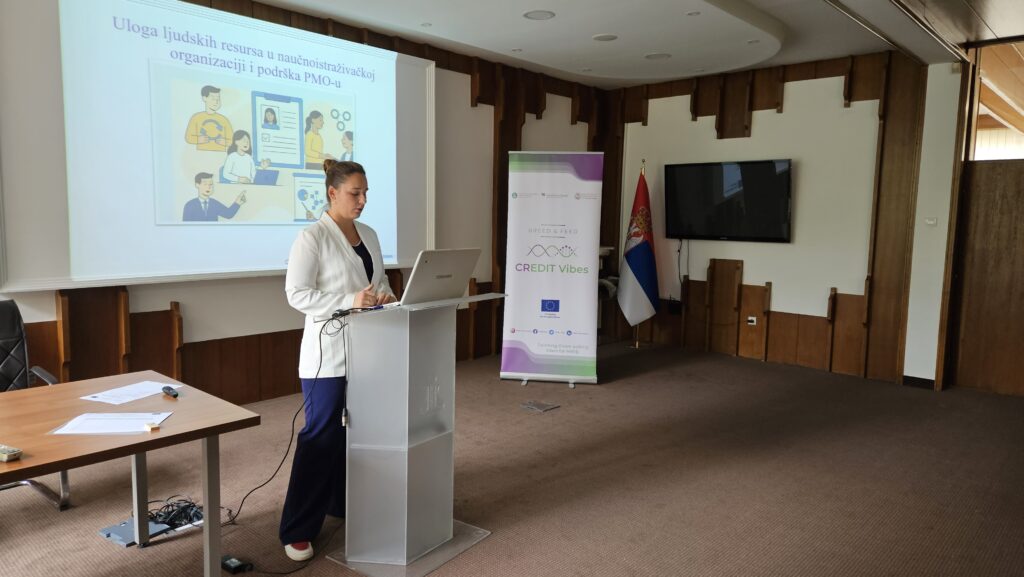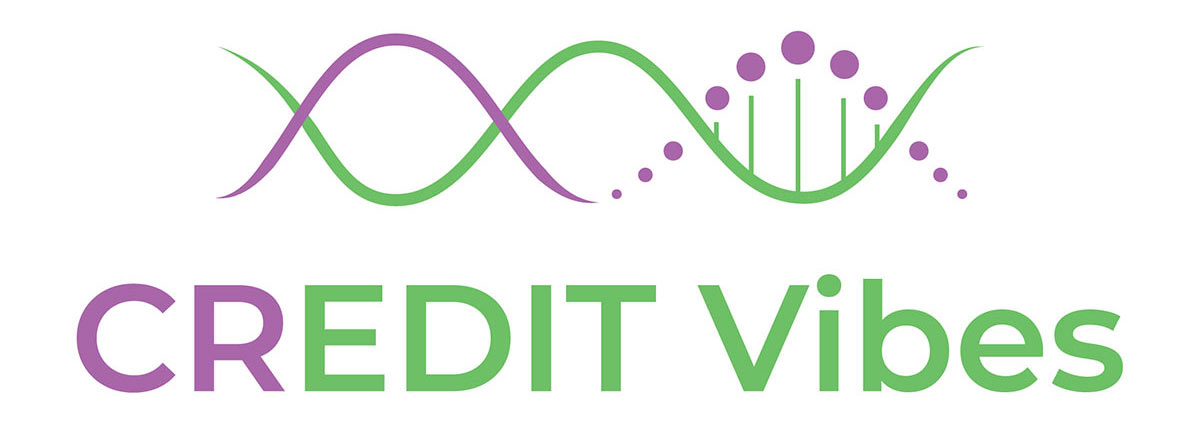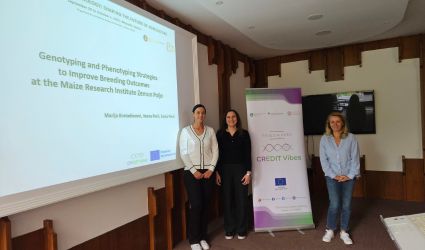As part of the International Conference “Crop Science and Technology: Shaping the Future of Agriculture”, held at the Maize Research Institute, Zemun Polje, on Wednesday, October 1st, 2025, three interactive workshops took place under the framework of the CREDIT Vibes Final Conference.
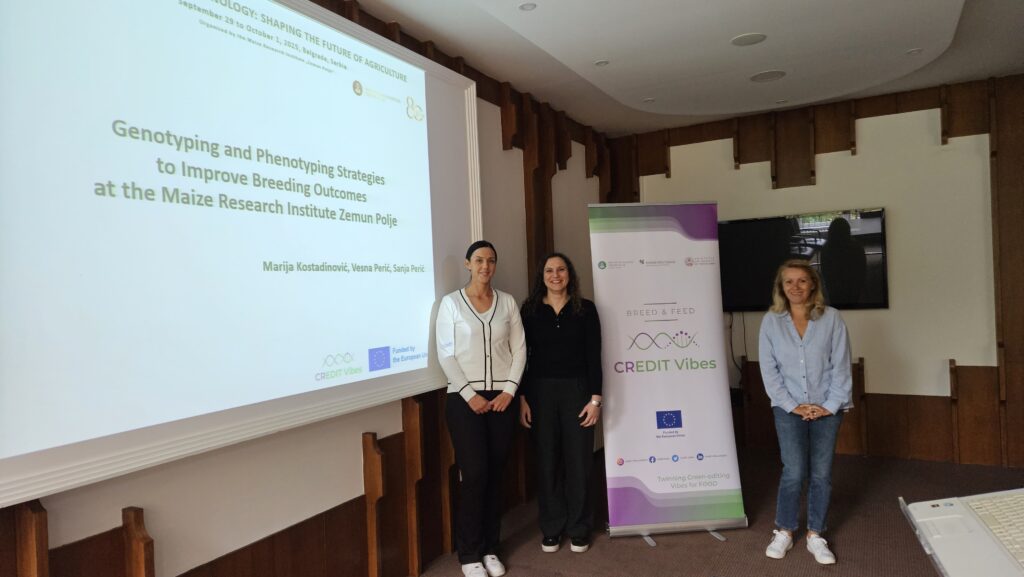
The educational program was structured into three thematic sessions, each followed by an open discussion, encouraging knowledge exchange and collaboration among participants.
Workshop 1: Genotyping and Phenotyping Strategies to Improve Breeding Outcomes
The first session focused on innovative approaches in crop breeding and data analysis.
- Dr. Marija Kostadinović opened the workshop by sharing her experiences from a training visit to the Agricultural Institute of Slovenia (KIS).
- Dr. Vesna Perić presented strategies for enhancing research capabilities in genotyping, phenotyping, and statistical analysis in crop breeding.
- Dr. Sanja Perić concluded the session with insights into advanced statistical techniques for agricultural research.
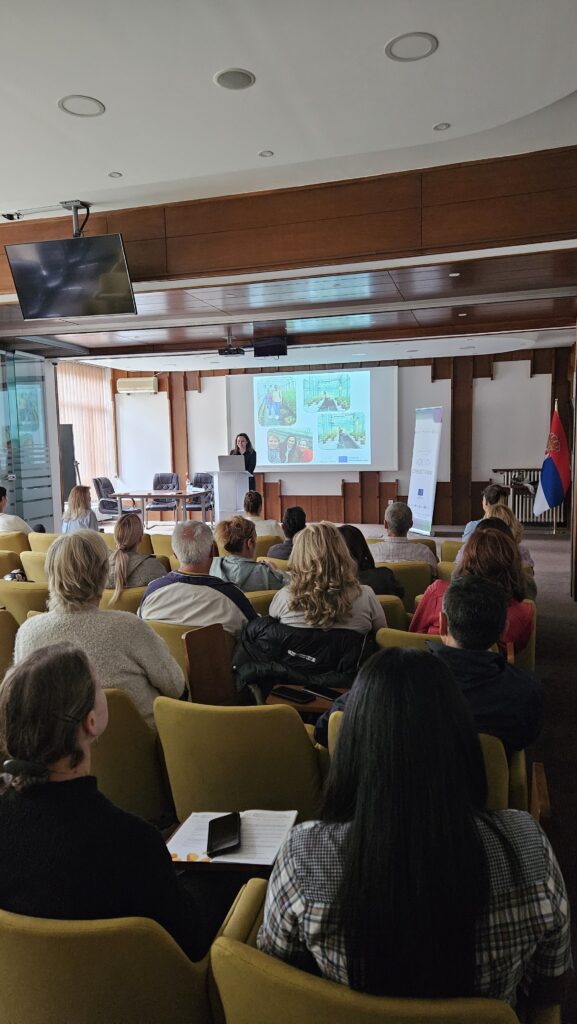
Workshop 2: Spectroscopy in Food Analysis
The second workshop, led by Dr. Marijana Simić, showcased the application of spectroscopy in food and soil analysis. Drawing on her training experience at Aristotle University of Thessaloniki (AUTH), she demonstrated the use of the NeoSpectra Scanner and the Spectral Evolution PSR+ spectroradiometer.
This training enhanced her expertise in precision agriculture and sustainable resource management, illustrating CREDIT Vibes’ dedication to knowledge sharing and research excellence across partner institutions.
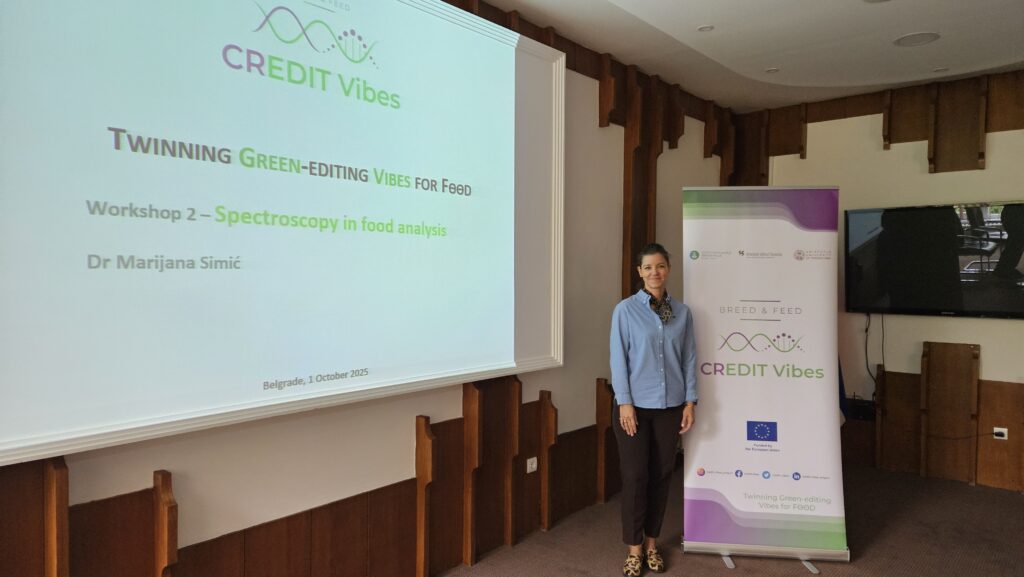
Workshop 3: Strengthening Institutional Capacities – PMO and HR in Scientific Institutions
The final session was jointly conducted by Dr. Iva Savić and Aleksandra Ognjanović.
• Dr. Iva Savić led the workshop “The Role of the Project Management Office (PMO) in a Scientific Institution”, focusing on improving research management, project coordination, and compliance with funding requirements.
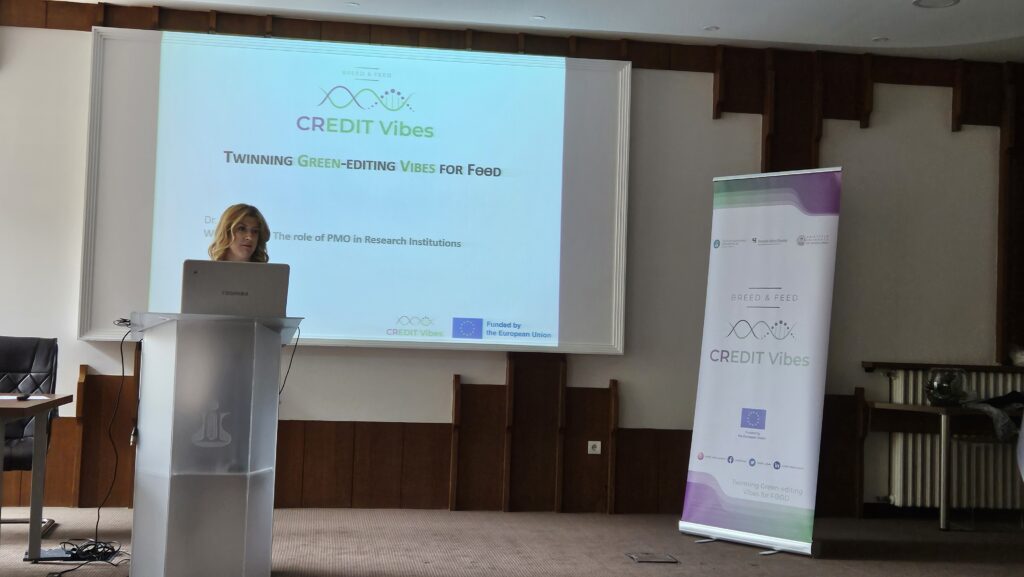
• Aleksandra Ognjanović presented on “The Role of HR in Scientific Institutions”, sharing practical insights on workforce planning, career development, digital transformation, and MRI’s pilot employee evaluation model. Her session emphasized how HR departments can act as key drivers of institutional change through networking, inclusion, and technology transfer.
These workshops collectively highlighted the importance of interdisciplinary collaboration, capacity building, and the continuous exchange of knowledge within the scientific community — core values of the CREDIT Vibes Project.
